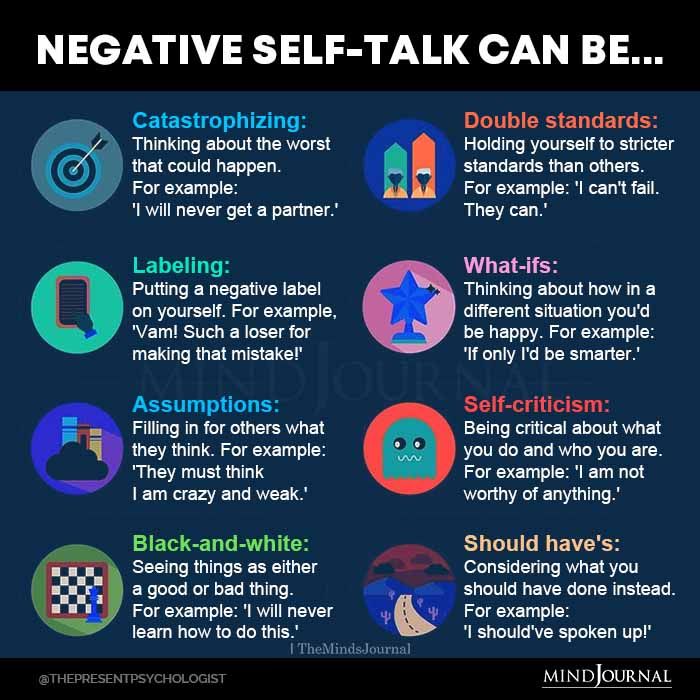In the intricate landscape of our minds, self-talk—the internal dialogue we maintain—serves as a powerful architect of our reality. This constant stream of thoughts can be a catalyst for personal growth or a barrier to mental well-being. Understanding the profound impact of self-talk is essential for anyone striving to lead a balanced and fulfilling life.
The Dual Nature of Self-Talk
Self-talk manifests in two primary forms:
- Positive Self-Talk: This involves affirmations and supportive inner dialogue that fosters confidence, motivation, and resilience. For instance, encouraging oneself with phrases like, “I can handle this challenge,” promotes a proactive mindset.
- Negative Self-Talk: Conversely, this encompasses critical and self-defeating thoughts that undermine self-esteem and contribute to anxiety and depression. Examples include thoughts like, “I’m not good enough,” or “I always fail.”

The Neuroscience Behind Self-Talk
Recent neuroscientific research has illuminated the profound impact of self-talk on brain function and cognitive performance. A study conducted by Kim et al. (2021) investigated how positive and negative self-talk influence functional connectivity within the brain during cognitive tasks. Functional connectivity refers to the coordinated activity between different brain regions, which is crucial for efficient cognitive processing.
In this study, participants engaged in tasks designed to elicit either positive or negative self-talk while undergoing functional magnetic resonance imaging (fMRI). The researchers observed that positive self-talk was associated with enhanced connectivity between the prefrontal cortex (PFC) and other regions involved in motivation and emotional regulation. The PFC is critical for executive functions such as decision-making, attention, and behavioral regulation. Enhanced connectivity in this area suggests that positive self-talk may bolster these cognitive processes, leading to improved performance and emotional stability.
Conversely, negative self-talk resulted in reduced functional connectivity between the PFC and these key regions. This diminished connectivity implies that negative self-talk can impair cognitive functions, potentially leading to decreased motivation and increased susceptibility to stress and emotional disturbances. The study underscores the importance of fostering positive self-talk to maintain optimal brain function and mental well-being.
These findings align with previous research highlighting the detrimental effects of negative self-talk on mental health. For instance, habitual negative self-talk has been linked to higher levels of stress, anxiety, and depression, as it perpetuates a cycle of criticism that undermines self-esteem and fosters a pessimistic outlook.
Understanding the neural mechanisms provides valuable insights into how our inner dialogue shapes our cognitive functions and emotional states. By cultivating positive self-talk, individuals can enhance functional brain connectivity, leading to improved cognitive performance and overall mental health.
Impact on Mental Health
The nature of our self-talk profoundly affects mental health:
- Negative Self-Talk: Engaging in habitual negative self-talk can lead to increased stress levels, anxiety, and depression. It creates a cycle of self-criticism that erodes self-esteem and fosters a pessimistic outlook on life.
- Positive Self-Talk: Conversely, positive self-talk has been linked to better stress management and overall mental well-being. It promotes a sense of control and optimism, enabling individuals to navigate challenges more effectively.

Influence on Personal Growth
Self-talk not only affects mental health but also plays a pivotal role in personal development:
- Negative Self-Talk: This can hinder personal growth by creating self-imposed limitations. Believing negative narratives about oneself can prevent individuals from pursuing opportunities and realizing their potential.
- Positive Self-Talk: In contrast, positive self-talk encourages a growth mindset, fostering resilience and adaptability. It empowers individuals to embrace challenges as opportunities for learning and development.
Real-Life Transformation Through Positive Self-Talk
Jan, a 55-year-old administrator and coordinator, had long been ensnared by the shadows of her past. Jan’s story is based on a real-life case study shared by a mindset coach.
Jan had always felt like life was happening to her rather than for her. At 55, she carried the weight of past traumas, troubled relationships, and years of self-doubt. She had convinced herself that she was destined for disappointment, and her inner dialogue reflected that belief. “I’m not good enough,” she would think whenever an opportunity arose. “Why even bother trying?”
Her days were filled with avoidance—of social interactions, of personal ambitions, of anything that might remind her of past failures. She numbed herself with distractions, even turning to alcohol to silence the relentless negativity in her mind. The world felt distant, and she felt powerless to change it.
One day, after yet another night of self-criticism, she made a choice. She reached out to a mindset coach, not entirely convinced it would work but desperate enough to try. The first thing her coach asked her to do was simple yet deeply uncomfortable: write down every positive thing she could say about herself. At first, her mind went blank. Positive things? About her? But slowly, she started jotting down small victories—times when she had helped a friend, moments when she had shown resilience.
Over the next few months, she worked on reframing her self-talk. Every time she caught herself thinking, “I’m a failure,” she forced herself to challenge the thought: Is that really true? Haven’t I overcome so much already? She replaced destructive phrases with empowering ones—“I’m learning,” “I am capable,” “I deserve happiness.”
It wasn’t an overnight change, but little by little, Jan started to feel lighter. She drank less, slept better, and reconnected with old friends. Instead of anticipating the worst, she began looking forward to the future. And the biggest shift? She finally felt in control of her own life.
Jan’s story is a testament to the power of self-talk. The words we whisper to ourselves shape our reality. And when we change that dialogue, we change everything.
Strategies to Cultivate Positive Self-Talk
Transitioning from negative to positive self-talk requires intentional effort and practice. Here are some effective strategies:
- Awareness and Identification: Recognize negative thought patterns. Keeping a journal can help identify recurring negative themes in your self-talk.
- Challenge Negative Thoughts: Evaluate the validity of negative thoughts and consider alternative, more positive perspectives.
- Positive Affirmations: Incorporate daily affirmations that reinforce self-worth and capability.
- Mindfulness and Meditation: Practices that promote present-moment awareness can reduce the influence of negative self-talk.
- Professional Support: Seeking guidance from mental health professionals can provide personalized strategies to improve self-talk.
Conclusion
Our inner dialogue wields immense power over our mental health and personal development. By cultivating positive self-talk, we can reshape our reality, fostering a healthier mind and a more fulfilling life. Embracing this practice is not merely about thinking positively but about transforming our entire approach to ourselves and the world around us.
Feel free to explore more topics on Personal growth & Psychology.

